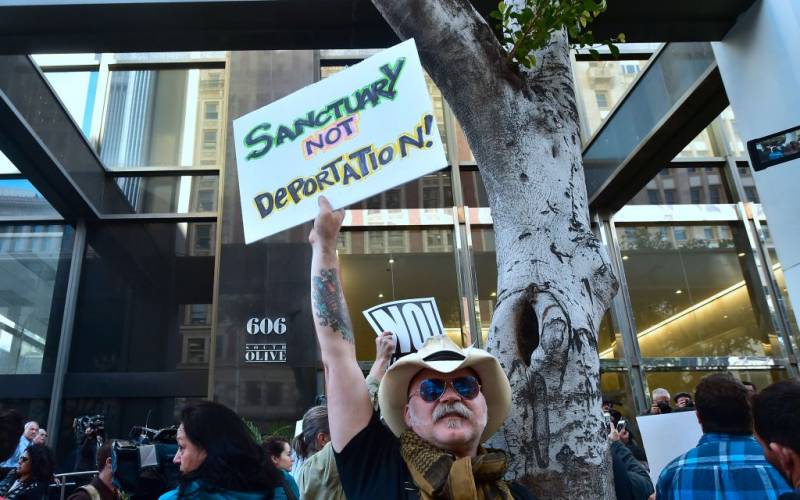The changes, scheduled to take effect the day before President-elect Joe Biden takes office, would triple the filing costs for some forms and motions in deportation — also known as “removal” — proceedings. Other types of forms could be even seven or eight times as expensive.
The fee for green card holders and other immigrants to apply to immigration courts for cancellation of removal, for example, would rise from $100 to $305 if the changes are implemented. But the biggest fee hike would be for appealing an immigration judge’s ruling, which would jump from $110 to $975.
If the fee hikes are adopted, low-income immigrants will be priced out of a fair day in court, said Cristina dos Santos, who directs the immigration program at Community Legal Services in East Palo Alto, one of the organizations that sued to block the new rule.
“We have clients who struggle even to pay the bus fare that it would take to get to our offices to receive our services,” said dos Santos. “We are really concerned about our clients not being able to meet the fee, and even worse, not being able to access the rights that are in our laws.”
The rule would also introduce a new $50 fee to apply for asylum in immigration court, according to the complaint.
Plaintiffs argue EOIR’s new rule is “arbitrary and capricious,” and fails to adequately consider the impacts on immigrants fighting deportation, particularly those who are indigent.

